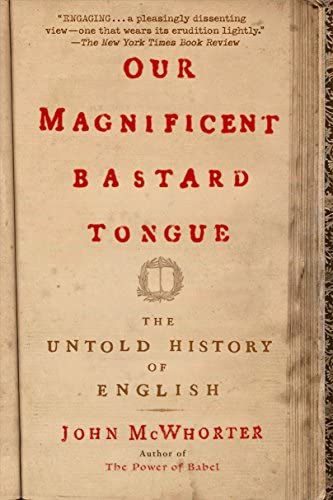All the words he highlighted are direct old English words and therefore classed in the defined family of Germanic languages. Old English words are still very common in modern english. If you refuse to acknowledge that the field of linguistics has defined a "germanic language family" that's on you, and the world's experts disagree. While the many germanic tribes were indeed genetically diverse, their languages shared enough similarities to group them together and set them apart from latin and its romantic derivatives. If you go back far enough, germanic languages and romance languages share a common root in proto-indo-european along with sanskrit and greek.
Also the Vikings conquered the northern half of England and actually had English kings, see Cnut the Great. So they were far from unsuccessful in their campaigns
if you want to learn more than you ever cared to, I recommend the History of the English Language podcast. It is a very detailed examination of the evidence and grouping of these languages and their connections and divergences.













![Craft A Brew - Safale BE-256 Yeast - Fermentis - Belgian Ale Dry Yeast - For Belgian & Strong Ales - Ingredients for Home Brewing - Beer Making Supplies - [3 Pack]](https://m.media-amazon.com/images/I/51bcKEwQmWL._SL500_.jpg)







































